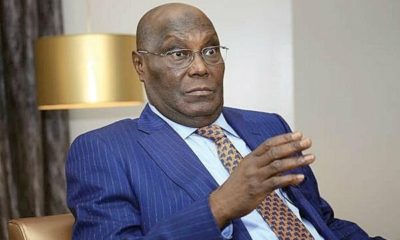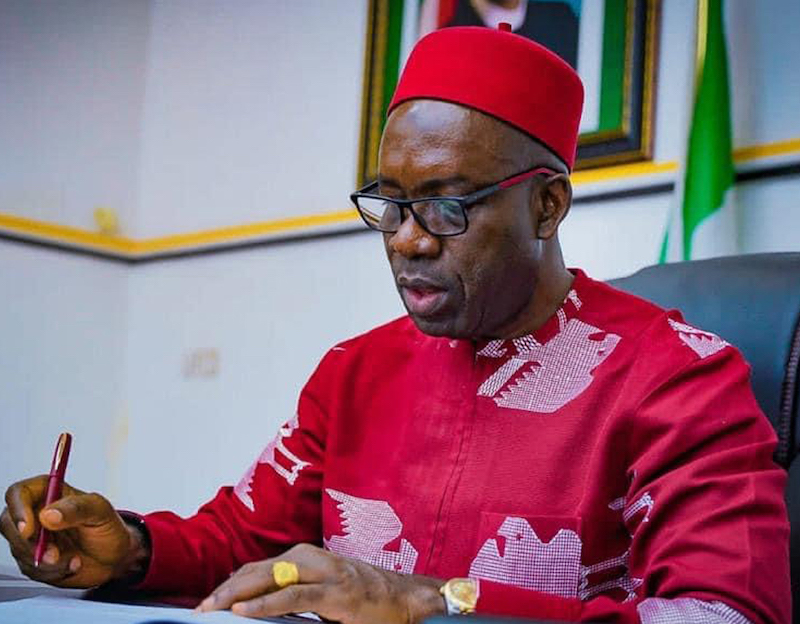By Chekwube Nzomiwu
The recent destruction of newsstands in major cities in Anambra State is another sad testament to the attack on press freedom by the administration of Governor Charles Soludo. According to media reports, the destruction of the newsstands by agents of the state government, left many hapless newspaper vendors stranded, as they had no other place to go and make their daily livelihood. In addition, the poor vendors incurred huge losses from the damages to their newspapers during the unfortunate incident.
This development calls for concern from all well-meaning Nigerians and members of the international community who are committed to the preservation of press freedom, which is a very important pillar of the rule of law, and by extension, democracy. Without press freedom, the protection of fundamental human rights will be a mirage.
Press freedom offers individuals and organisations, the right to express, publish, and share information, ideas and opinion without fear of government censorship or government interference. It is guaranteed in Section 22 of the 1999 Constitution of Nigeria (as amended).
The above-mentioned section says, “The press, radio, television and other agencies of the mass media shall at all times, be free to uphold the fundamental objectives contained in this chapter and uphold the responsibility and accountability of the government to the people.” Section 39 of the same constitution, which recognises the freedom of speech, accords every Nigerian the right to own, establish and operate any medium for the dissemination of information, ideas and opinion.
The three traditional functions of the media-information, education and entertainment-underscore their importance in the society. Besides the traditional functions, the modern media perform other functions, such as mobilisation and surveillance.
Stressing the importance of the press during the parliamentary debate on the opening up of press reporting of the House of Commons of Great Britian in 1787, British political thinker and statesman, Edmund Burke described the press as the Fourth Estate. The term emanated from the European concept of the three estates of the realm-the clergy, the nobility and the commoners.
Fast-forward to today, power in a democracy is divided between the legislature, executive and the judiciary. The position of the media (trained journalists) as the fourth estate has not changed, regardless of the emergence of citizen journalism, brought about by constant technological advancement. The reason is simple. Democracy thrives on the ability of the people to access information.
Hence, it is disturbing that the government of Anambra State under a Governor of academic extraction, has become notorious for denying the people access to information. The Soludo administration commenced its offensive against the media with the closure of the National Light Newspaper, owned by the Anambra State Government. Until Soludo came to power, the newspaper was funded by successive governors, from Chinwoke Mbadinuju to Sen. Dr. Chris Ngige, Mr. Peter Obi and Willie Obiano.
Having rendered the state owned newspaper moribund, several denials notwithstanding, the Soludo government appears hell-bent on making the environment unconducive for privately owned print media organisations, to perform their constitutional role and carry out their lawful businesses in Anambra State. It beats my imagination that the same government that committed itself to press freedom before the Nigeria Union of Journalists (NUJ) in Awka, in July last year (2023), could embark on the destruction of newsstands less than a year after.
Quoting Governor Soludo’s Edo State born Chief Press Secretary, Christian Aburime, as reported by Michael Ovat in Nigerian Tribune online on July 25, 2023, “NUJ should not be confrontational. Anambra Government are not at war with NUJ. Soludo is not wicked and reckless as portrayed by the State chapter of NUJ. NUJ and journalists as a whole have been part of this government to make Anambra a livable and prosperous state in Nigeria. Soludo has promised that journalists would not suffer any form of intimidation in their duties under his administration.”
Unless Soludo does not want his words to be taken seriously, he is educated enough to know that the destruction of newsstands amounts to intimidation of journalists. The journalists are not just writing for the fun of it. They are performing the role assigned to them by Section 22 of the Constitution under the “Fundamental Objectives and Directive Principles of State Policy” on one hand, and on the other hand, want their newspapers to be patronised to generate revenue from the media organisations paying their salaries.
Yes, some newspapers are running online editions, but majority of Ndi-Anambra who fall within the middle and low-income classes, cannot afford data to read online at this critical time of economic depression, caused by the removal of fuel subsidy and floating of the Naira, culminating in “very dangerous” galloping inflation, that has eroded incomes. Also, I have not heard of any part of Awka, the Anambra State capital or Onitsha, the commercial city, not to speak of interior parts of the State, that enjoys free access to internet.
As a former Chief Economic Adviser to the President and Governor of Central Bank of Nigeria (CBN)/ de facto Minister of National Planning, it is not in doubt that Professor Soludo has travelled far and wide. Let him tell us anywhere in the world where newsstands are not allowed. Heathrow Airport is the biggest airport in the United Kingdom and the fourth busiest in the world. All the four terminals have newsstands. So, what’s the fuss in Anambra State about newsstands?
If anything, Anambra being the “Light of the Nation” should be a model for other states and even the Federal Government to follow when it comes to respecting freedom of the press. Anambra is the home of foremost nationalist, late Dr. Nnamdi Azikiwe, the great Zik of Africa, Owelle of Onitsha and founder of the West African Pilot, which revolutionised the newspaper industry in the entire West Africa. There were also other titles under his Zik’s Group.
Anambra also produced great journalists like M.C.K Ajuluchukwu, Mokwugo Okoye and Osita Agwuna, may God bless their gentle souls. It was the writings of these great and courageous men and their comrades from other parts of Nigeria that sent the British packing from Nigeria in 1960, to pave the way for Nigeria’s independence. By the way, the last time I checked, history was not being taught in many schools in Anambra state, although Professor Soludo announced the reintroduction of the subject in the school curriculum when he assumed office in 2022.
Finally, I don’t think that Soludo being an academic, needs to be reminded that newsstands are informal lecture halls for educating the people. I therefore passionately call on him to order his agents to halt further destruction of newsstands in the State. In areas where they have been destroyed already, he should quickly direct the erection of new modernised stands for the vendors to restore their means of livelihood. This will convince us that he is not taking Anambra State away from liberal democracy and moving us towards ‘putinisation” a term popularised by former President of European Parliament, Martin Schulz.
Nzomiwu, a development communicator and political scientist, wrote from Awka, Anambra State

 News3 weeks ago
News3 weeks ago
 News4 weeks ago
News4 weeks ago
 News1 week ago
News1 week ago
 Columns2 weeks ago
Columns2 weeks ago
 News4 weeks ago
News4 weeks ago
 News3 weeks ago
News3 weeks ago
 News4 days ago
News4 days ago
 News6 days ago
News6 days ago





















